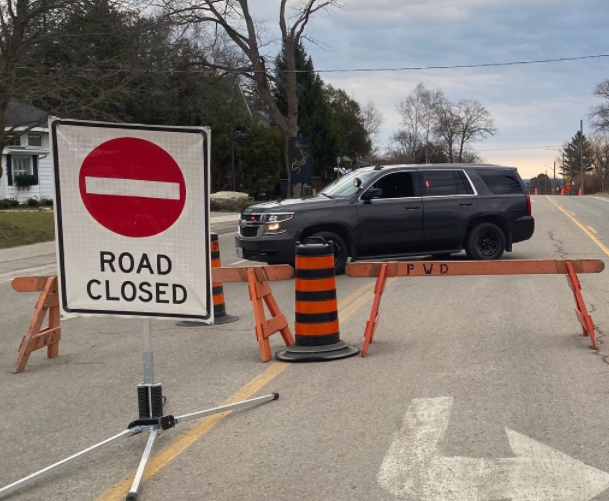In a psychotic state brought on by schizophrenia, Justice Snache saw a random man walking down the street as the embodiment of the voices in his head telling him he must strike out or be killed, his lawyer told a court Monday.
Thirty-four-year-old Derek Simmerson was suddenly attacked on Coldwater Road in Orillia while walking home from his father’s place on Nov. 19, 2020. The first of three knife strikes hit his lung and heart and killed him.
Snache, who was 20 at the time, pleaded not guilty on Monday to second-degree murder. But he agreed to the admitted statement of facts presented by one of the two Crown attorneys read into the court describing the attack that night.
Ontario Superior Court Justice Cary Boswell then found Snache guilty of second-degree murder.
Snache, his lawyer Jay Herbert submitted to the court, should be found not criminally responsible because in that psychotic state at the time as a result of worsening schizophrenia, Snache had no appreciation that what he was doing was wrong.
Forensic psychiatrist Dr. Yedishtra Naidoo, who examined Snache, found the Severn Township man had started experiencing auditory hallucinations the previous year that caused “distortions in his thought process.”
The voices, he added, appeared to Snache to be real. The day he encountered Simmerson on the street, Snache was operating under the perception that someone wanted to kill him.
“He was unable to apply ... an understanding of wrongfulness” as a result of psychotic illness, Naidoo told the court, giving evidence to a largely full courtroom via a Zoom video connection.
During the past two years while in jail he had continued to experience psychosis, the doctor added.
Court heard Snache exhibited bizarre behaviour the day prior to the attack. The voices in his head had become more troubling and he tried to reduce their intensity by listening to music and drinking alcohol.
“Mr. Snache and Mr. Simmerson were strangers to one another,” Crown attorney Miriam Villamil-Pallister said, reading from the admitted statement of facts, and then reciting Snache’s chronology that evening after leaving Taco Bell where he worked.
Snache went to a restaurant for food and alcohol before walking down Coldwater Road where the attack occurred. Later, he went to a bar where he was “very fidgety” and expressed odd gestures that concerned the staff to an extent that the manager took over the service.
Snache, the Crown attorney said, had his earbuds on the whole time.
He then went to another restaurant and then to a coffee shop before taking a taxi home.
Later that night the taxi driver turned in what appeared to be a bloody knife he found in the car.
Three days later, Snache turned himself in to police and confessed.
“Was Mr. Snache acting through some sort of distortive lens of his mental illness?” his lawyer asked the doctor.
“Yes,” the doctor replied. “He held the belief that the individual, the victim, was going to kill him.”
Eye contact and the fact Simmerson had his hand in his pocket were indications of threat to Snache, who believed the other man had a knife in his pocket.
The psychotic state, the doctor explained, fluctuates in intensity. Three days later, Snache had a better understanding about wrongfulness and he turned himself into police, admitting to the killing.
Court heard Snache had purchased the knife that summer, distressed by the voices and intending to commit suicide. He then kept the knife for self defence and carried it every day during the week prior to the attack.
Herbert, the defence lawyer, said Snache’s symptoms had manifested themselves prior to the attack and he had been to a series of hospitals across the province looking for help. He ended up at an Ottawa hospital in February of 2019 after an episode on a train when his odd behaviour led train staff to consider him suicidal.
A year later he reported having audible hallucinations, seeking help at Toronto Western Hospital. He also went to hospitals in Brampton and Kitchener when the symptoms continued.
“This is a young Indigenous man who asked for help more than once,” his lawyer told the court in his closing submissions. He said Snache received “no true oversight of his mental illness.”
He described Snache as an otherwise well-mannered, helpful and nonviolent person.
Crown attorney Michelle Levasseur told the court she wasn’t contesting the defence’s application for the court to find Snache not criminally responsible.
Court resumes Wednesday morning for the judge's decision on whether Snache was "criminally responsible" for Simmerson's death.



